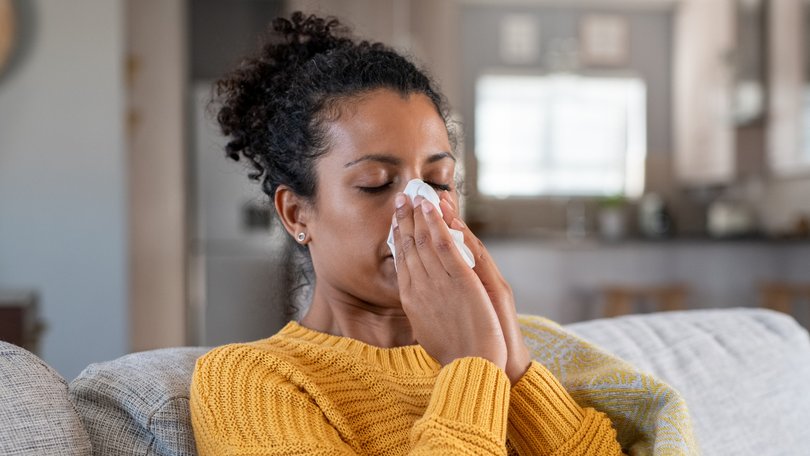One in three Australians now living with an allergy as report reveals financial burden
New analysis has laid bare the financial and emotional strain allergic disease causes its sufferers.

One in three Australians is living with an allergy, according to a new analysis which has laid bare the financial and emotional strain allergic disease causes its sufferers.
An estimated 8.2 million Australians have at least one allergy, a Deloitte Access Economics report found, an increase from the 4.1 million or one in five people reported in 2007.
The most common conditions were hayfever (23.5 per cent), eczema (10.9 per cent) asthma (9.3 per cent), food allergies (7 per cent) and drug allergies (5 per cent). The report found one in 10 Australian babies now have a food allergy, while more than 2400 people were hospitalised with anaphylaxis last year.
Sign up to The Nightly's newsletters.
Get the first look at the digital newspaper, curated daily stories and breaking headlines delivered to your inbox.
By continuing you agree to our Terms and Privacy Policy.Twenty of those lost their lives, mostly triggered by foods, insect stings or medications, while asthma claimed the lives of 474 people last year.
The report laid bare the financial burden of allergies, estimated at $18.9 billion each year, with a further $44.6 billion in annual wellbeing losses.
Experts have sounded the alarm over the findings, and called for greater investment to support those living with allergies.
Allergic disease is now one of the country’s fastest growing chronic conditions, which National Allergy Centre of Excellence director and paediatric allergist Kirsten Perrett said was possibly due to environmental changes such as urbanisation and pollution and lifestyle factors like antibiotic use and sanitisation.
“Australia has some of the highest allergy rates globally, including the world’s highest reported rate of infant food allergy, affecting one in 10 babies.,” she said.
“The burden isn’t just physical; for many families allergic disease disrupts daily life and brings financial and emotional strain.
“Through national research collaboration, we’re now better placed than ever to understand these complex conditions and deliver more targeted, effective responses.”
National Allergy Council co-chair Maria Said, who is also the chief of Allergy & Anaphylaxis Australia, said for too long the everyday impact of allergies had been invisible.
“Allergies don’t just disrupt health – they reshape lives. Millions of families are living with constant vigilance and fear,” she said.
The report recommended future investment should focus on clinical and public health programs that reduce the cost of allergies, upskilling health professionals, identifying ways to address allergy data gaps and accelerating allergy prevention and management research.
Originally published on The West Australian
